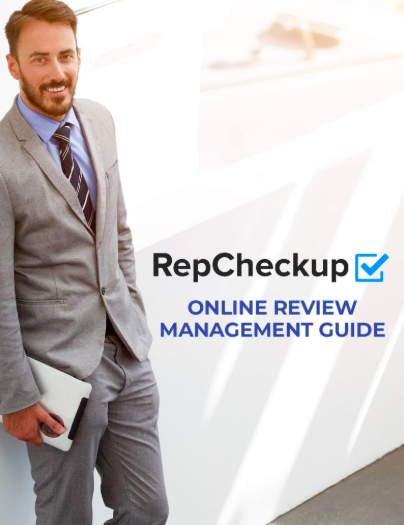How Google’s Change to Review Rich Results Will Impact You

In September, Google implemented a change that completely shifted the way its crawlers interact with the review rich snippets that used to help get reviews on a webpage to show up on SERPs. This change shakes up an old practice that allowed businesses to use review rich results to better compete on search results pages.
Now, Google reported that they changed their algorithm to “not (display) review rich results anymore for the schema types LocalBusiness and Organization (and their subtypes) in cases when the entity being reviewed controls the reviews themselves.”
If you’ve been relying on review rich results, here’s what these changes mean for you. If you want to learn about what’s up in the SEO world, this one is for you too.
What are Review Rich Results
Review rich results, commonly known as review rich snippets, were a way businesses could embed information about their reviews onto the search results page.
That way, when someone searches for a business or product, many of the results would come with eye-catching review information under them.
This is what it looked like on SERPS and within Google’s Knowledge Boxes:
When working with review rich snippets, businesses often elected to showcase certain pieces of information over others. In this case, that meant displaying their star rating, the number of votes their business has, and their price range.
All of this information could help distinguish them from the competition and get a potential customer to click through to their website.
For a while, Google tested out using these pieces of information to better rank websites on search results pages. And, for a while, users would be able to use their judgment and select a promising-looking business from the information displayed on the result page. However, this latest change from Google denotes that something happened along the way that made them realize that review rich snippets weren’t the best practice after all.
Taking Advantage of the System with Self-Serving Reviews
Online reviews have always been a sort of safe space for customers to gather information. The majority of people will trust an online review over what a family or friend tells them. That’s why all of the top online review platforms tend to side with the reviewer when a business tries to get a review taken down.
So, if safekeeping the integrity of online reviews is a priority, it only makes sense that Google eventually stopped displaying review rich results.
Instead of displaying information in an unbiased manner, review rich results enabled businesses to control reviews directly. They could create a catalog of curated, great reviews to display on their website. Then, this information would be pulled onto the search results page for everyone to see.
The issue is that, once a business can pick and choose which reviews to display, those reviews no longer belong to the reviewer. In fact, the business could tweak the content of a review or simply make them up.
But, when someone encounters information from review rich results on a Google SERP, they’re not going to question it. With the business at the helm of this type of information, it becomes another marketing campaign designed to help the organization – not the consumer.
Google refers to these types of reviews as “self-serving reviews,” which pretty clearly gives away their stance on the topic. Not all reviews get created equally, and they no longer want to display reviews that could only benefit the business that decides to display them.
Google’s Changes to Review Rich Results
Now that Google is specifically targeting what they call self-serving reviews, showcasing reviews through review rich results is no longer an option. As of September 2019, Google is no longer showing or considering review rich results for added SEO value.
However, you’ll be glad to know that Google did not get rid of rich results completely. Businesses can still add a variety of schema to their website that will get vital information to show up on a search results page.
As reported in Google’s official statement, the unaffected schema types include:
- schema.org/Book
- schema.org/Course
- schema.org/CreativeWorkSeason
- schema.org/CreativeWorkSeries
- schema.org/Episode
- schema.org/Event
- schema.org/Game
- schema.org/HowTo
- schema.org/LocalBusiness
- schema.org/MediaObject
- schema.org/Movie
- schema.org/MusicPlaylist
- schema.org/MusicRecording
- schema.org/Organization
- schema.org/Product
- schema.org/Recipe
- schema.org/SoftwareApplication
That means that you could still reap the rewards of having more control over what shows up for each page on a SERP even without review rich results being an option.
Why They Implemented These Big Changes
Now that Google is no longer displaying review rich results, we can only take their word for why this change was enacted. On the Official Google Webmaster Central Blog, they published:
“Reviews that can be perceived as “self-serving” aren’t in the best interest of users. We call reviews “self-serving” when a review about entity A is placed on the website of entity A – either directly in their markup or via an embedded 3rd party widget. That’s why, with this change, we’re not going to display review rich results anymore for the schema types LocalBusiness and Organization (and their subtypes) in cases when the entity being reviewed controls the reviews themselves.”
Once businesses began using review rich results to market themselves using the credibility of online reviews, this function became rife with self-serving reviews. As a result, much of the information presented on SERPs from the review rich results benefit the business while misinforming consumers.
When a business is in control of their own reviews, the integrity of the review is lost. Removing review rich results may seem drastic, but it gives the customer the higher ground again so that they can make informed decisions on their own. With the majority of people trusting what they see on Google, displaying such information was problematic and, ultimately, unsustainable.
Getting rid of review rich results doesn’t mean that you won’t be able to display information of your choosing on SERPS. Instead, you’ll have to make the most out of the remaining schema types to customize what users see. This change protects users from being potentially misled from the information Google is presenting to them based on what businesses place onto their site.
How You May Be Impacted
Google removing review rich results will impact businesses that have been using this function to better appeal to customers. Now that this information will not be presented on SERPS, or used when ranking pages, you may notice a decrease in the click-through rates and traffic.
With a more even playing field, you may notice that your top pages are no longer performing as well without the reviews to win customers over. As a result, you can expect the traffic to those pages, and your entire site, to drop a little bit unless you begin making the most of other schema types.
Because of this change, you should also expect to spend more time monitoring and enhancing your business’s profiles on third-party review platforms, like Yelp or Angie’s List. That’s because Google knows that customers use ratings and reviews to make their decisions. Instead of going straight to your site, users who want to read reviews and learn more about your business will get routed to your third-party profiles.
Removing review rich results was never about removing this information from the customer’s world. Instead, they will be placing more value on the ratings and reviews that you have on other platforms. That way, consumers can still get unbiased information about a business through customer reviews – but without the possibility that the business is manipulating the reviews for their benefit.
Third-Party Sites: Are They the Winners?
Now, businesses can no longer take advantage of the ability to display their collected review in their search listings. The change, however, was not rolled out to third party review sites. This means that customers who search for you by brand name will only see the review stars from sites like Yelp, TripAdvisor, Healthgrades, etc. As a result, many customers may bypass your website in favor of heading to your Yelp profile.
With this new reality, it seems like online review platforms like Yelp, Angie’s List, Avvo, and Caredash will come out on top. More users will be clicking on these results (since they stand out) than ever before.
And all of this culminates in one likely conclusion: your third-party review profiles even more crucial than ever.
What You Should Do Now
Businesses must continue making the most out of online reviews despite the loss of review rich results. Instead, take the time to make sure that the information on your review profiles is up to date. Then, begin routing customers to your profiles to leave reviews about their experience.
This will make all the difference between a potential customer choosing to work with your business over the competition. While you may see a drop in traffic to your website, you can still use great reviews to your advantage! Potential customers who are looking at your profile instead of your site will still use this information to make their purchasing decision. So, make sure to continually gather new reviews so that the most enticing information is front-and-center for them.
As a result of Google removing review rich results, you should also experiment with how you can use other schema types to your advantage. You can still use this function to showcase How To’s and some of the information seen in your knowledge box.
So, while things are going to be a bit different on the SERPs from now on, you can still use online reviews to help your customers make the decision to work with you!









